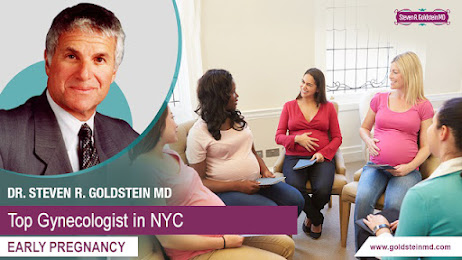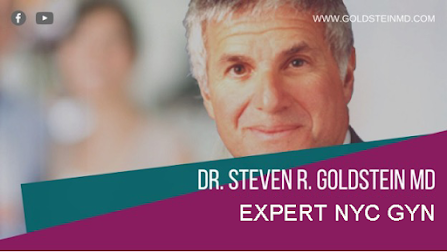Dr Steven R. Goldstein is an obgyn in Manhattan and considered one of the nation’s top doctors in Gynecology. Dr Goldstein performs early pregnancy monitoring with Transvaginal Ultrasound to make sure a pregnancy is meeting its milestones and there is no miscarriage.
There is a hormone present during pregnancy - HCG (human chorionic gonadotropin). A developing pregnancy will produce detectable hormone of pregnancy by eight days post conception. That means it is there and present prior to being late for one’s menses. Home pregnancy tests turn positive at around the time of the expected menses (approximately fourteen days after conception).
The rate of rise of hCG in normal healthy pregnancies is extremely well established. Thus, if there is any concern for the health of a pregnancy, measuring the hCG rate of rise at 48 hour intervals will tell us a great deal about the health of the pregnancy (although, it does not tell us anything about the pregnancy’s location). An Ectopic pregnancy can occasionally result in a relatively normal early development, which may follow normal doubling times of hCG.
Usually, the hCG level doubles at 48 hours. However, there is a minimum rate of rise of approximately 35-45% in early pregnancy depending on the starting value of testing. Dr. Goldstein has published and lectures extensively on early pregnancy, both its detection by ultrasound and how to diagnose pregnancy failure before miscarriage, as well as, diagnosing ectopic pregnancy early enough to be treated non-surgically with medication.
Dr Goldstein, an obgyn in Manhattan , is an expert in Transvaginal Ultrasounds and a former Director of Gynecologic Ultrasound at NYU Langone Medical Center. Dr Goldstein is one of the most highly recognized and regarded individuals in the field of vaginal probe ultrasounds. He has championed painless, non-invasive means of diagnosis such as Transvaginal Ultrasounds and Sonohysterograms over painful, invasive, exploratory surgeries as a first means of diagnosis. He is a Professor of Obstetrics and Gynecology, New York University Grossman School of Medicine.
If you have been told you are pregnant, then a consultation with Dr Goldstein, a leading obgyn in Manhattan would be appropriate for early pregnancy monitoring by Transvaginal Ultrasound to ensure the position of the pregnancy and that it is meeting its milestones. Dr Goldstein works by appointment only and does not overbook his practice. Please allot at least one hour for your visit.




